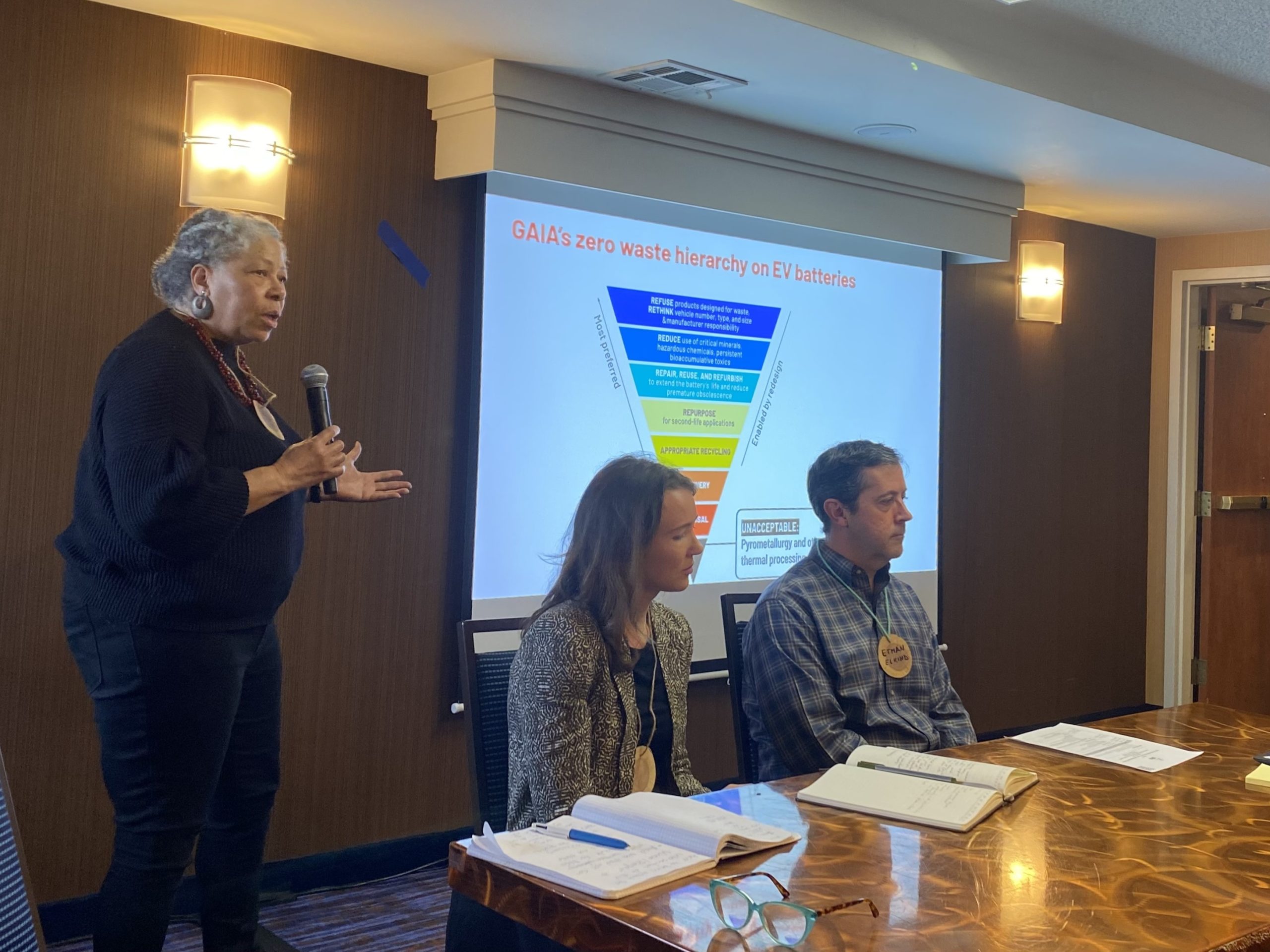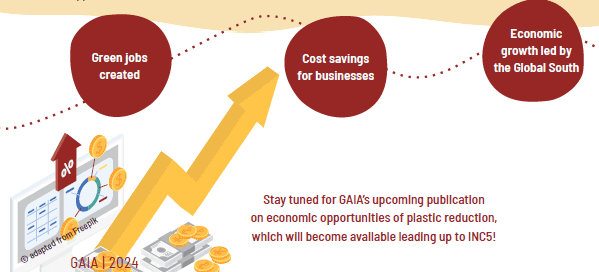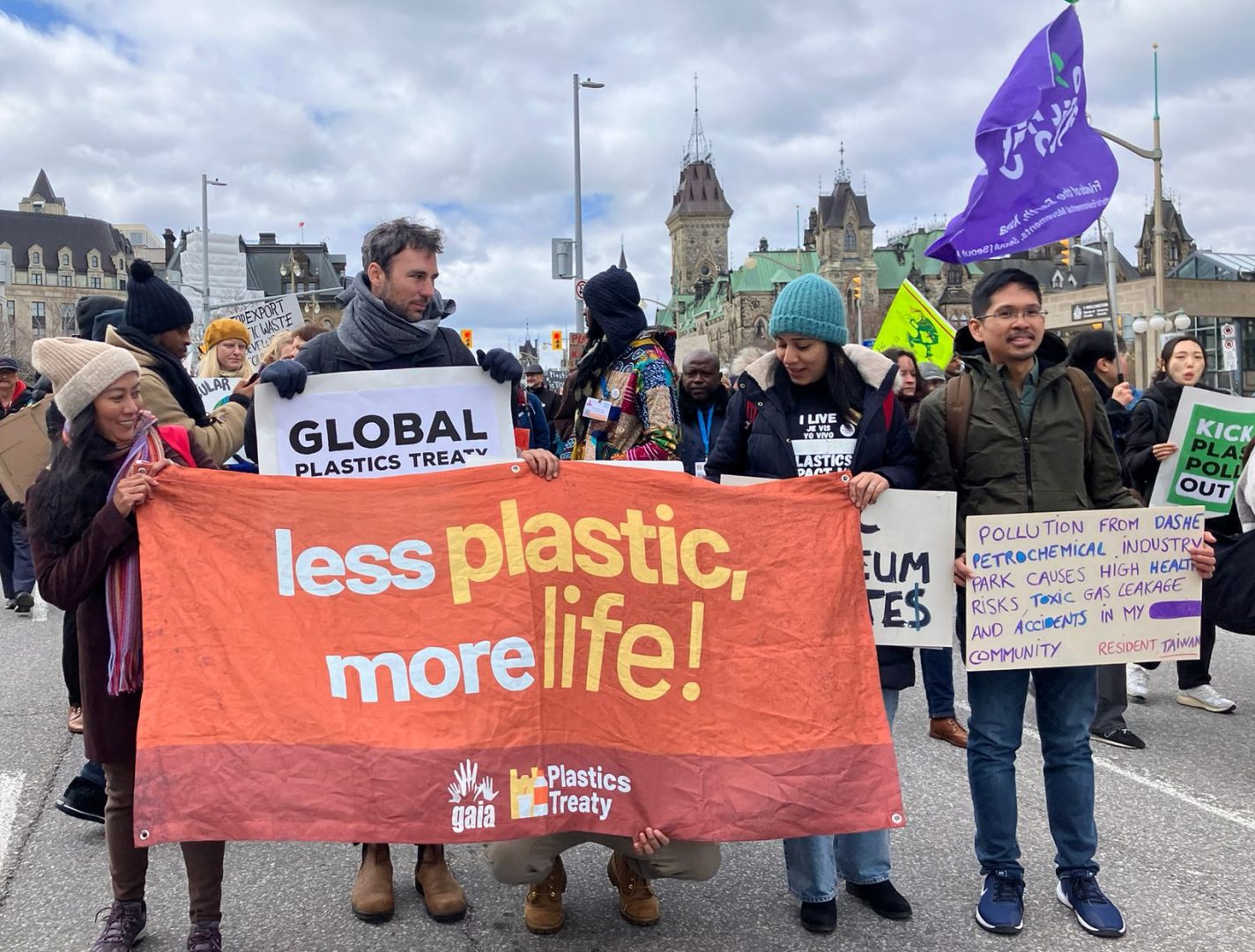While recognising and supporting the need to avoid duplication of mandates,institutions and resources between treaties, the new legally binding international instrument to end plastic pollution (“Plastics Treaty” or “the Treaty”) offers an excellent opportunity to highlight and fill gaps that either fall outside the scope of the Basel Convention or that the Basel Convention is not effectively addressing.
This submission provides detailed GAIA recommendations to orient intersessional work and global plastics treaty negotiations. It includes criteria and processes to set plastic production freeze and phasedown targets and schedules and their supporting measures, and a framework to identify high-risk plastic products and materials for priority action, as well as polymers and other chemicals of concern, among other issues.
In this brief, GAIA recommends how to approach the list of potential areas for possible intersessional work
compiled by the co-facilitators of the two INC-2 contact groups. Intersessional work must prioritize
upstream measures, starting with the package of measures for a phasedown of plastic production to
sustainable levels.
The future plastics treaty’s scope agreed in UNEA resolution 5/14 covers all plastics and all plastic pollution across the full lifecycle of plastics. In addition to the Rio Principles, human rights, the principle of prevention and inter-generational equity must also be reflected in treaty control measures and means of implementation.




























